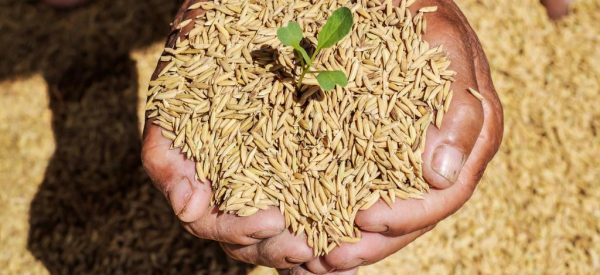Tanzanian rice farmers are set to benefit from a digital innovation that is poised to bring improved, high-yielding rice varieties closer to the growers.
Dubbed SeedCast, the app aims to strengthen rice seed demand and supply information by closing the gap between seed traders and farmers.
“The app acts as a hub connecting farmers, seed suppliers, and policymakers, fostering much-needed collaboration in the Tanzanian seed chain. It provides verified data about where farmers can find quality seeds, how much they cost, and how far they need to travel to get them. The app’s analytics will also serve the national need to match seed production with demand,” said Dr. Dennis Tippe, Director of Policy and Planning.
He added that this can help encourage farmers to adopt improved, higher-yielding varieties, speeding up varietal replacement.
SeedCast-Tanzania was officially launched by Dr. Patrick Ngwediagi, the Director General of the Tanzania Official Seed Certification Institute (TOSCI), during the three-day NARES-IRRI breeding network’s Annual Advancement Meeting held in Dar es Salaam, Tanzania.
It was developed by the International Rice Research Institute (IRRI) in India in collaboration with partners including Odisha States Seed Corporation (OSSC) and the Odisha Department of Agriculture in 2021 and is being successfully used.
Its development plan began in June 2021 under IRRI’s broader mission of South-South Collaboration but more specifically aligned to the project Accelerated Genetic Gain in Rice (AGGRi) Alliance which began in 2019.
A consultative and inclusive needs assessment survey was conducted across the seed chain in Tanzania later in August 2021 which showed that in Tanzania, there was no formal procedure for aggregating seed demand, farmers were not aware of improved rice varieties, and digital innovation can be a solution to challenges faced by the rice seed systems and thus by the rice farmers.
The development of the app started in December 2021 and was followed by consultations in the regional agricultural offices in Morogoro, Shinyanga, and Mbeya which were regions that participated in the piloting stage.
The app’s main features
The main features of the app include increased accessibility through language and technology localization and integration. Swahili was added as a language feature since it is Tanzania’s major local language.
The database was also populated with rice varieties available in the country. To improve ease of access, account usage, and communication or internet allowances were provided to extension workers.
IRRI Seed Systems and Product Management Lead in Eastern and Southern Africa Dr. Daniel Menge stated that TOSCI will be hosting and managing the app moving forward.
Dr. Patrick Ngwediagi also shared, “Our nation has been waiting for a long time for an innovative, timely, and cost-effective solution for aggregating seed demand directly from their users who are the farmers themselves.”
He acknowledged the acceptance of his institution to host and manage SeedCast-Tanzania and added that his institution’s mandate role is a regulator in the seed value chain but because of the sub-sector’s infancy, his institute has been playing a role as a facilitator and collaborating with various development partners in the efforts to contribute to the growth of the sub-sector.
Aligned with existing laws
Dr. Ngwediagi assures that SeedCast has been developed to align with existing laws and terminologies, and will be thoroughly reviewed to ensure it meets local and international standards.
SeedCast-Tanzania’s launch was attended by various stakeholders of the rice value chain from private and public sectors, policymakers, researchers and experts from partner institutions, the rice breeding and seed systems from various IRRI country offices in Africa and Asia and was witnessed by participants of the meeting from various parastatals, private companies, other CGIAR Centers including AfricaRice and, Alliance Biodiversity and CIAT, Tanzania’s Ministry of Agriculture, Tanzania Official Seed Certification Institute (TOSCI), Tanzania Seed Traders Association (TASTA), and NARES partners from 11 countries in the ESA region.








